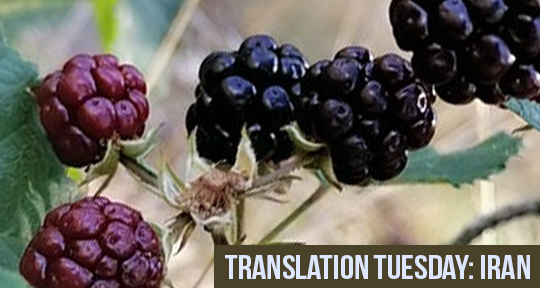This week’s Translation Tuesday features a haunting sequence of short poems by the Tehran-born Alireza Roshan. Known widely as “a poet without a book,” Roshan began writing these brief poems on the Internet around 2008, and subsequently gained a popular readership for his evocative verses. For that reason, we may think of these poems as subsisting on a specific cultural moment when the tweet started to be conceived as a unit of thought. On the other hand, these poems can also be said to draw on the tradition of the haiku form that has made its way through world poetics. In Gary Gach and Erfan Mojib’s translation, these poems from The Book of Absence (where Roshan’s poems were eventually collected) flicker dramatically into existence and—in their quick apprehension of a strange image—dissipate, only to have their absence linger in the mind of the reader.
You did to me
what black mulberries
do to fingertips
*
No matter how many windows
I open—darkness
won’t leave my home
*
Solitude
is an invisible thread
which begins from the tip of your toe
encircles the earth
then reaches your heel READ MORE…


